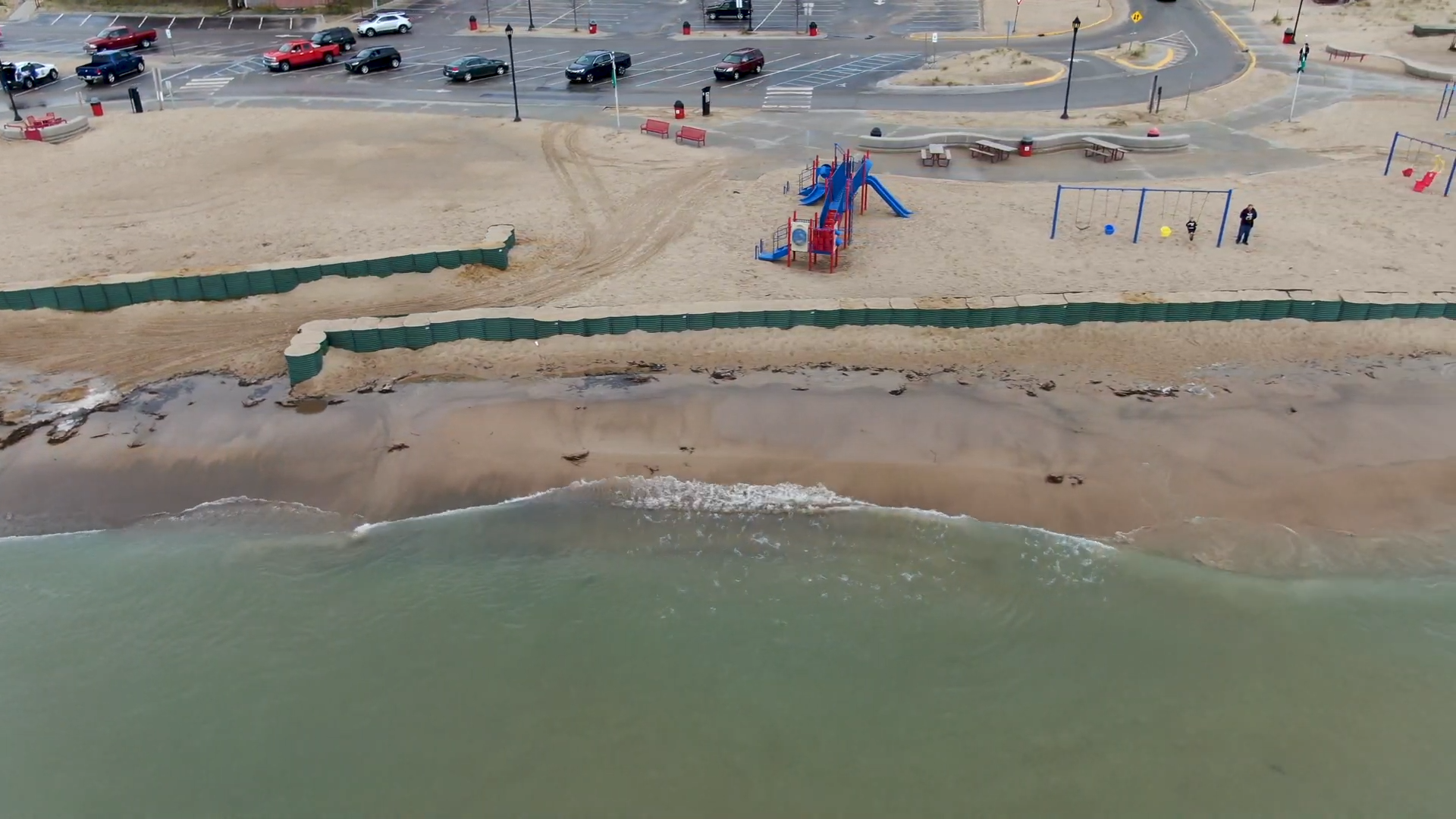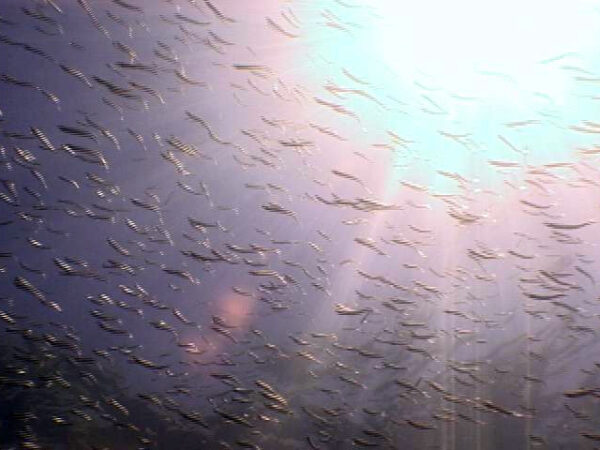
By Makayla Coffee, Bridge Michigan
The Great Lakes News Collaborative includes Bridge Michigan; Circle of Blue; Great Lakes Now at Detroit Public Television; and Michigan Radio, Michigan’s NPR News Leader; who work together to bring audiences news and information about the impact of climate change, pollution, and aging infrastructure on the Great Lakes and drinking water. This independent journalism is supported by the Charles Stewart Mott Foundation. Find all the work HERE.
Large waves on the Great Lakes are enough to make some Michigan beachgoers head back to shore, but for surfers and other sports enthusiasts these rough waves are what drive them to hit the water.
“All of the best days that we have (with) the best conditions are all red flag days.” said Nate Knoth, an avid surfer from Holland, referencing the state warning flag that signals dangerous waters.
As Bridge Michigan first reported last week, the state is considering closing beaches during dangerous conditions amid drowning incidents across the Great Lakes region. The proposed order also would give DNR authority to ticket people who enter the water when conditions are considered dangerous.
About 10 people opposed to that proposal voiced their opinions at a state Natural Resources Commission meeting Thursday in Okemos. In light of those impassioned pleas from surfers, DNR officials indicated they might be open to revising the proposal before it’s scheduled to take effect in August.
The red flags that fly on Michigan beaches during dangerous waves are meant as a warning to swimmers. But too often, state officials say, swimmers ignore them. Under the proposed order, DNR wouldn’t have to wait until a red flag is up to decide conditions are too dangerous to keep beaches open.
Critics of the proposed order acknowledged the good intentions behind it but said it’s not the best way to improve water safety in Michigan.
“I know just based on my own experience that there are a lot of passionate recreational users of the water particularly during red flag events because they are using water when there are high winds or waves,’ NRC Commissioner David Nyberg said.
Nyberg said the order does not separate those experienced in such waters from casual beachgoers who might not recognize the danger.
“It is a difficult scenario because this order is also looking to protect those who are venturing out into the Great Lakes beaches who are maybe less familiar with some of the dangers that are present,” Nyberg said, “but then also proposing a limit to recreational access to those who are very prepared.”
One compromise might involve closing only the section of the beach deemed unsafe instead of the entire beach. By doing this, said Nicole Hunt, regulatory unit manager in the state’s Parks and Recreation Division, people can still enjoy their time on the lakes while remaining safe.
Department of Natural Resources Director Daniel Eichinger has the power to issue the order without approval from the commission, but agency staff on Thursday appeared open to making changes based on Thursday’s critiques.
If the proposal goes forward, water sport enthusiasts said they are hoping to be exempt from the order. Many surfers at the meeting proposed resolutions such as rewording the order or exempting individuals who attach themselves to a floatation device.
Any exemption would have to be discussed and gain approval among the Parks and Recreation Division management and Eichinger.
“From what I heard, what is being asked is that we look at putting together an exception for those water sports users,” Hunt told Bridge Michigan after the hearing. “So we will have to go back in and look at whether it’s possible to prepare an exception for them and if it makes sense.”
The possible tightening of water rules comes amid concerns that the Great Lakes will reach a new record in drownings this year. So far this year, Great Lakes drownings are up 36 percent over 2020, according to the nonprofit organization The Great Lakes Surf Rescue Project.
As swimmers neglect the red flags hung at different beaches, the state feels it needs to intervene by prohibiting water access when these conditions present themselves.
Surfers such as Knoth, though, sought to have their expertise in the water recognized.
“If surfers are in the water, they’re trained, they know the area (and) they know the risk and have the equipment a lifeguard would have,” Knoth said. Surfers “are prepared to deal with it and I think that’s a key part of water safety is having those surfers and other water sports enthusiasts.”
Several critics of the proposed order said they too want to reduce drowning risks, but that could be better accomplished through increased water safety education and signage posted on beaches.
The proposed order is not expected to take effect until August. But Hunt said that if an exception or change is carved out it would likely be announced prior.
No matter what, Hunt said, decisions will be made with safety in mind.
“We know there is an inherent risk with swimming,” she said, and making “that activity a little bit safer are things that we want to do.”
Catch more news on Great Lakes Now:
People ignore drowning warnings, so Michigan may close Great Lakes beaches
Nonprofit: Number of drownings in Great Lakes jumps in 2021
API key not valid. Please pass a valid API key.Featured image: South Haven beach (Great Lakes Now Episode 1016)




